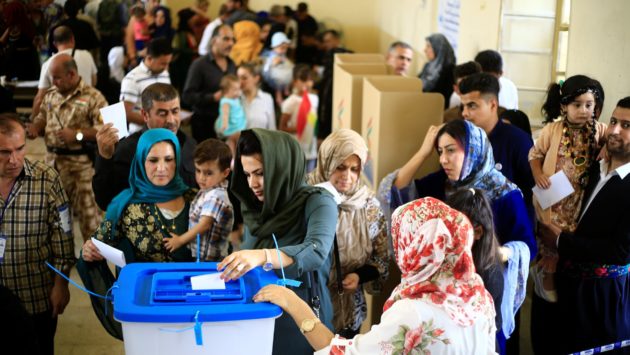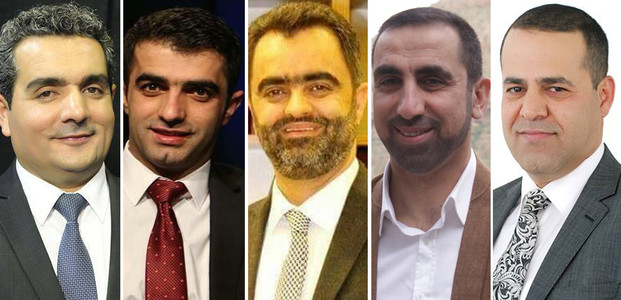BEIRUT – A rift has grown between the highly influential Shiite Grant Ayatollah Ali al-Sistani and Ayatollah Ali Khamenei over the Iranian supreme leader’s Iraq policies, according to a London-based daily.
The MP, who remained anonymous, explained that Sistani—who wields considerable political influence as Iraq’s top ranking Shiite cleric—has grown frustrated with Khamenei’s stance regarding the Popular Mobilization force fighting ISIS in Iraq.
“The first difference that led to the break between the two [Shiite figures] was over the issue of the Popular Mobilization, which Sistani wanted to be a [national] Iraqi entity more than a religious one,” the MP claimed.
Iraq formed the Popular Mobilization force on June 15, 2015 as an auxiliary government-led only two days after Sistani had issued a religious edict calling on Iraqis to defend their country against the threat of ISIS expansion.
This force, which has been organized and directed with support from Iran, became an almost exclusively Shiite force, while Sistani stressed his fatwa called for a cross-sectarian force that would serve at the behest of the Iraqi state.
“The second difference is over the raft of reforms proposed by [Iraqi Premier Haidar al- Abadi] and his decision to fire Nouri al-Maliki from his post as [an Iraqi VP], a move rejected by Iran, specifically Khamenei, who insists that Maliki remain in his post,” the MP also told Alaraby Aljadeed.
Abadi on August 9 announced a raft of measures to reform the Iraqi state, two days after Sistani told him to “strike against corruption with an iron fist” as Iraqis mobilized for growing protests against the state’s inability to provide basic services.
Abadi’s seven-point reform plan—which was approved by the cabinet and parliament—called for eliminating the co-vice presidential posts, one of which is held by Maliki.
However, Iran extended the embattled Maliki a show of support, hosting him for a visit to Tehran on August 19 during which he met with Khamenei. Reports have since emerged that Iran continues to provide Maliki political support and oppose Abadi’s reforms.
The final point of contention between Sistani and Khamenei stems from Russia’s potential involvement in Iraq, according to the unnamed MP.
He claimed that Sistani does not want to see Russia intervene militarily in his country, insisting that Baghdad should rely on “one strong ally” instead of two competing ones, in reference to Washington and Moscow.
“Sistani told those close to him that the policy of Iran’s supreme leader increases hostilities toward Shiites not only in Iraq but in the rest of the Arab countries,” the Shiite MP told Alaraby Aljadeed.
Reports of differences between Sistani and Iranian leaders have been growing in past months. In September, Asharq Alawsat reported that Sistani had sent a message to Iranian Supreme Leader Ali Khamenei questioning him about “Soleimani’s increasing influence in Iraq.”
An unnamed Iraqi politician told the Saudi-owned daily that Sistani had asked “whether this had happened at Khamenei’s instruction or through Soleimani’s [own independent action].”
Sistani’s growing frustration over Soleimani’s role in Iraqi politics represents growing differences between the clerical establishments in Iraq’s Najaf and Iran’s Qom, the world’s top two Shiite seminaries.
Asharq Alawsat’s source said Sistani has started to realize that Iran’s intervention in Iraqi politics on behalf of Maliki “has begun to affect [Najaf’s] historic role.”
The source added that Sistani’s action was evidence of “a clear dispute between the Najaf… and Qom Seminaries” in which Sistani and Khamenei are the highest authorities respectively.
According to the politician’s own analysis, Khamenei’s approach to reform in Iraq focuses on “the political dimension of the issue because the holding to account of [high level] corrupt [figures] will affect powerful Shiite leaders.”
“Sistani looks at the matter from a legal perspective; he believes that fighting corruption is a legal duty, regardless of the political consequences.”





